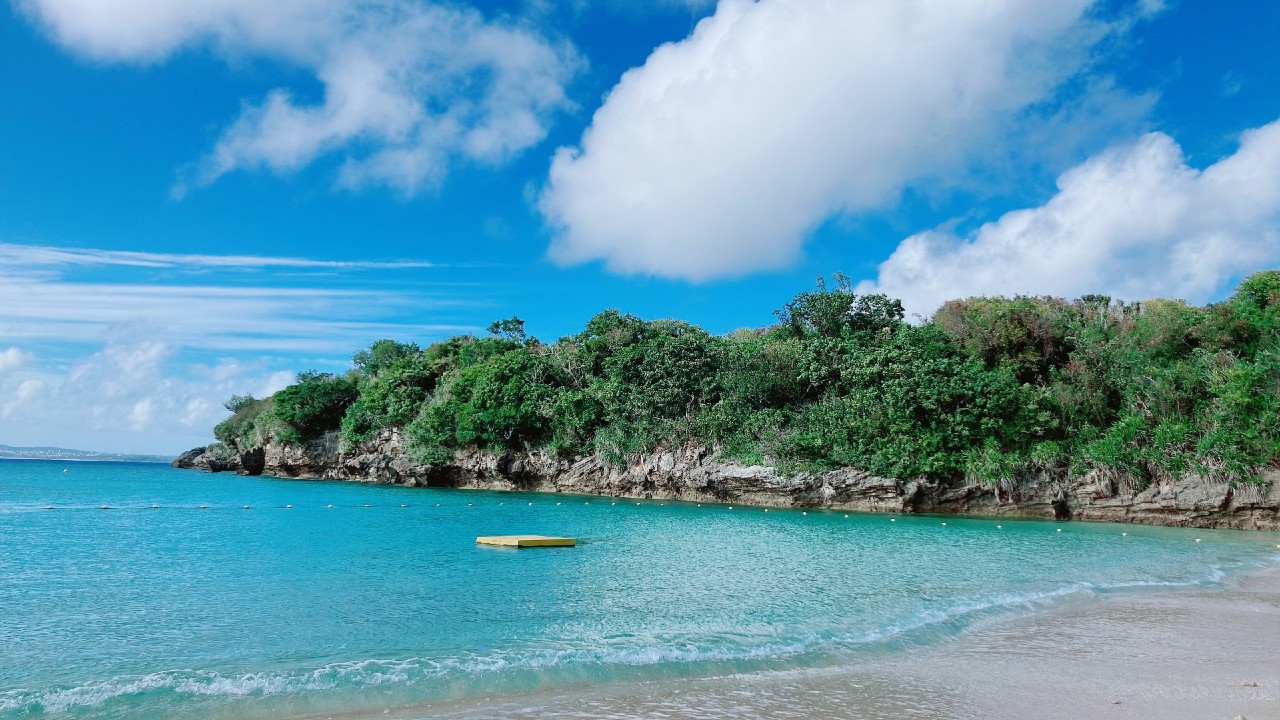
Okinawa Pocket WiFi: Enjoy Unlimited Data on Japan’s Strongest Network (Okinawa Cellular)
Emerald blue waters, a unique cultural heritage, and vast, untouched nature. To make the most of your trip to Okinawa in 2026, a stable internet connection is an absolute necessity—as vital as your passport. However, choosing a network with the same mindset as you would for major cities like Tokyo or Osaka can lead to "dead zones" and connectivity hurdles unique to Okinawa's landscape. In this article, we’ll provide a deep dive into the technical and practical reasons why a Pocket Wi-Fi (Okinawa Pocket WiFi) is highly recommended over an eSIM for exploring this island paradise.
1. Understanding Okinawa’s Unique Signal Environment: Why Connections Drop
Okinawa possesses one of the most unique telecommunications environments in Japan, largely due to its distinct topography and infrastructure history.
【Technical Insight】Okinawa’s Terrain and Signal Behavior
The main island of Okinawa is long and narrow, with mountainous terrain in the center and a highly complex, jagged coastline. Radio waves are easily obstructed; therefore, in the northern "Yanbaru" forest regions, at the base of seaside cliffs, or inside Okinawa’s notoriously sturdy reinforced-concrete hotels, standard smartphone antennas often struggle to maintain a signal.
This is where "Antenna Gain" (sensitivity) becomes critical. Smartphones have small antennas squeezed into tight spaces alongside cameras and circuit boards. In contrast, Pocket Wi-Fi devices are dedicated communication tools equipped with larger, high-performance antennas. They can stubbornly hold onto signals even in areas where a smartphone would typically show "No Service."
2. Head-to-Head Comparison: Pocket Wi-Fi vs. eSIM | Which Should You Choose for Okinawa?
Many travelers assume that having the latest iPhone makes an eSIM sufficient. However, based on real-world experience in Okinawa, there are several unexpected pitfalls to consider.
| Comparison Point | Pocket Wi-Fi (Recommended) | eSIM / Prepaid SIM Card |
|---|---|---|
| Battery Drain | ◎ Minimal Offloading data processing prevents your phone from overheating. |
△ Severe Combining 4G/5G data with GPS can drain a phone in less than half a day. |
| Connection Stability | ◎ Extremely High Dedicated antenna picks up even faint signals. |
○ Device Dependent Coverage varies based on your phone's specific hardware. |
| Sharing | ◎ Completely Flexible Connect up to 15 devices. Perfect for families and groups. |
× Limited Tethering often triggers speed caps and kills battery life. |
| Setup Effort | ◎ Zero Simply turn it on and enter the password. |
△ High Difficulty Requires profile deletion or ensuring the phone is SIM-unlocked. |
【Pro Tip: The Battery Issue】
Okinawa’s summers are notoriously hot. Using your phone as a car nav while simultaneously streaming data via eSIM causes the device to heat up rapidly, often triggering a "High Temperature" emergency shutdown. Using a Pocket Wi-Fi inside your rental car offloads this stress from your phone, ensuring your sightseeing isn't interrupted by a dead or overheated device.
eSIM Japan
3. The King of Okinawa: The Secret of "Okinawa Cellular" and WiMAX 5G
Which network offers the best "anywhere" coverage in Okinawa? The answer is undeniably "Okinawa Cellular (au/KDDI group)." Here is the technical and organizational background on why they dominate the region.
Unmatched Infrastructure Investment by a Local Leader
"Okinawa Cellular Telephone Company" is a local Okinawa-based company within the KDDI group. They boast an overwhelming market share of approximately 50% in the prefecture. Because they reinvest their profits directly into local infrastructure, they have meticulously placed base stations in remote island villages and along complex coastlines that mainland carriers often overlook.
Why WiMAX 5G is the Strongest Choice
WiMAX 5G utilizes the Okinawa Cellular network (au 4G LTE/5G) directly. By choosing a model that supports the "Platinum Band" (800MHz band), radio waves can wrap around obstacles to reach deep into hotel rooms, basements, or valleys. Renting a WiMAX device effectively means you are tapping into the most trusted infrastructure in Okinawa.
4. The "Rental Car × Pocket Wi-Fi" Synergy for a Perfect Road Trip
Over 90% of sightseeing in Okinawa involves a rental car. Having a Pocket Wi-Fi in your vehicle dramatically upgrades the quality of your trip.
Real-Time Navigation
Built-in rental car navigation systems may lack the latest road updates or newest cafe listings. By staying connected via high-speed Wi-Fi, you can use Google Maps to avoid traffic jams and arrive at top-rated restaurants without getting lost.
Entertainment for Passengers
The drive from Naha to the Churaumi Aquarium takes about two hours. With a large-capacity Pocket Wi-Fi, kids and friends can enjoy YouTube, TikTok, or Netflix without worrying about data caps, turning your car into a mobile Wi-Fi hotspot.
Social Media Live Streaming & Workations
Whether you're streaming an Instagram Live from a stunning beach or hopping on an urgent video call, the stable upload speeds of SoftBank or WiMAX allow you to use your car as a mobile office or studio from anywhere on the island.
5. Data Usage Simulation: Do You Really Need 100GB?
You might think a 100GB or Unlimited plan is overkill, but you’ll consume data faster than you expect in Okinawa. Let’s look at a typical daily consumption model for a group of three.
- Google Maps (Navigation & Researching Spots) Approx. 500MB
- Social Media (Posting Photos, Uploading Reels, Browsing) Approx. 2,000MB (2GB)
- YouTube / Video Streaming (In hotels or during transit) Approx. 3,000MB (3GB)
- Email, Messaging, Video Calls, & Background Updates Approx. 1,000MB (1GB)
- Daily Total (For a group of 3) Approx. 6.5GB 〜 10GB
Over a one-week stay, your total usage can easily reach 50GB to 70GB. Just one person watching high-definition video can push you toward that 100GB limit fast. The true value of renting a Pocket Wi-Fi is the freedom to travel without the stress of monitoring your data usage.
6. Why International Travelers Choose CDJapan Rental for Okinawa
We provide more than just a device; we offer peace of mind during your special stay in Okinawa.
Flat, Transparent Pricing
No "remote island surcharges" for shipping to Okinawa. We offer a clear, one-price system to fit your budget. Returns are easy—just drop the device in any mailbox across Japan before you leave.
Full English Customer Support
If you encounter issues like connection drops or setup questions, our professional staff is ready to help in English. Enjoy your trip without any language barriers.
Carefully Selected Latest Models
From WiMAX 5G (powered by Okinawa Cellular) to SoftBank models with excellent resort coverage, we only offer devices best suited for Okinawa’s specific signal landscape.
🚨 Important Notice Regarding Shipping to Okinawa
Because Okinawa is far from mainland Japan, shipping takes longer than usual. Deliveries can also be affected by weather conditions (typhoons).
To ensure your device is waiting for you at Naha Airport or your hotel, we strongly recommend completing your reservation at least 7 days before your arrival.
Upgrade Your Okinawa Trip with the Best Internet Connection
Data caps, battery anxiety, and complicated setups are a thing of the past. Choose the perfect plan today and share your ultimate Okinawa experience with the world!
Check Pocket Wi-Fi Plans & Rates

